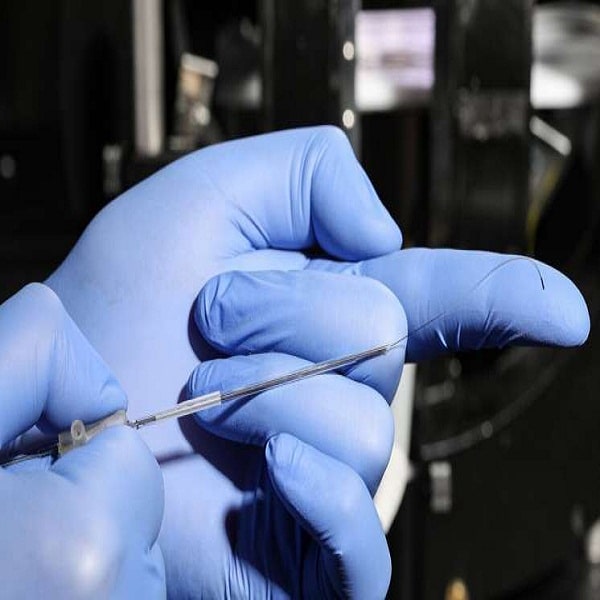This artificial intelligence could be a literal brainchild.
As if AI technology wasn’t becoming human enough, Maryland scientists aim to generate artificial intelligence from — wait for it — our own brain cells.
A study helmed by researchers at John Hopkins University (JHU) in a large international collaboration was published Tuesday in the medical journal “Frontiers,” detailing this alleged Frankentech the team called a “new frontier.”
“The vision of OI [organoid intelligence] is to use the power of the biological system to advance the field of live sciences, bioengineering, and computer science,” Lena Smirnova, a JHU researcher and author on the paper, told VICE.
To harness these capabilities, the scientists hope to employ “organoids,” 3D cultures of human brain cells that replicate parts of our noggin responsible for learning and memory. Their size allows the neurons within them to form significantly more connections than standard silicone computer chips, which could be rendered obsolete by this bold new biotech. In fact, researchers foresee this biological hardware getting hooked up to AI and machine learning systems like ChatGPT and Bing, er Sidney, in the near future — think an advanced Krang from “Ninja Turtles.”

In other words, it’s the reverse of the sci-fi-fostered fear of having a computer chip implanted in our brains.
Researchers claim that utilizing brainpower is far more efficient than concocting AI from concentrate. “If we look at how efficiently the human brain operates in processing of information, learning etc, it is tempting to translate and model that to have a system which will work faster and more efficiently [than] current computers,” Smirnova declared.
This might seem like a bold statement in a world where machines handily best us at everything from math to the game Go. However, while computers are better for on-the-fly calculations and other functions, our organ boasts a far superior capacity for learning and memory.

According to the study, the brain can store 2,500 terabytes of info — around 1,000 times more than the latest MacBook Air. Not only that but they use much less energy than their silicone counterparts, with a 2016 study finding that the brain is capable of storing the entire internet on just “enough power to run a dim light bulb,” per LiveScience.
By contrast, it would require a whole nuclear power station to run one computer that does what our mind does with 20 watts.
This technological brainchild is important given that “we’re reaching the physical limits of silicon computers because we cannot pack more transistors into a tiny chip,” study co-author Thomas Hartung of JHU said in a press release.
The possibilities of computer-brain interfacing extend beyond simply generating more ram. “For example, we could compare memory formation in organoids derived from healthy people and from Alzheimer’s patients, and try to repair relative deficits,” said Hartung. “We could also use OI to test whether certain substances, such as pesticides, cause memory or learning problems.”
In the fall, scientists went viral after teaching a dish of brain cells to play the 1970s arcade game, Pong.

Just like with AI, OI isn’t without its ethical dilemmas, including whether the cells can experience pain or suffering or — on a more dystopian level — if the neurons can develop a consciousness. There is also the question of if the surrogate who donated the cells for the organoids has any rights.
“A key part of our vision is to develop OI in an ethical and socially responsible manner,” Hartung declared. “For this reason, we have partnered with ethicists from the very beginning to establish an ‘embedded ethics’ approach.”
He added, “All ethical issues will be continuously assessed by teams made up of scientists, ethicists, and the public, as the research evolves.”
The scientists added that ultimately “it’s just a matter of building the community, the tools, and the technologies to realize OI’s full potential.”

Source: Nypost










